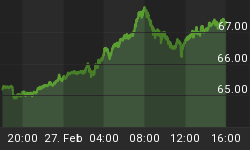Now that bitcoin has subsided from speculative bubble to functioning currency (see the price chart below), it's safe for non-speculators to explore the whole "cryptocurrency" thing. So...is bitcoin or one of its growing list of competitors a useful addition to the average person's array of bank accounts and credit cards -- or is it a replacement for most of those things? And how does one make this transition?
With his usual excellent timing, London-based financial writer/actor/stand-up comic Dominic Frisby has just released Bitcoin: The Future of Money? in which he explains all this in terms most readers will have no trouble following. As you'd expect from someone who uses words to amuse as well as educate, Frisby's prose is informal and fluid and occasionally very funny, with lots of first-person anecdotes.
The message, however, is fairly serious: Bitcon is, just maybe, a new and better form of money, an emerging homo sapiens to the dollar's Neanderthal. As such it's potentially transformational.
So let's start with a little background: Bitcoins are created (or mined) when computers solve certain kinds of mathematical puzzles. The number of bitcoins outstanding is designed to grow at a predetermined rate for a predetermined period, making its supply both limited and predictable (in contrast to fiat currencies that multiply at the whim of central bankers and politicians). And the currency can be transferred online quickly and cheaply, bypassing the traditional banking/credit card nexus.

Frisby spends the first half of his book telling the story of how bitcoin came to be, featuring the author's attempts to track down the currency's enigmatic creator, Satoshi Nakamoto (generally believed to be either an individual super-genius polymath or some sort of libertarian programmer collective). Frisby concludes that it's the former and claims to have found him. You'll have to read the book for that revelation.
He also profiles some of the early players in the bitcoin ecosystem. Silk Road, for instance, was briefly the Amazon.com of online drug sales until it was shut down by the authorities -- and then subsequently reemerged in various forms around the world. Meanwhile, a lot of early adopters made and lost some serious money during bitcoin's initial price spike:
One student from Norway bought $27 worth in 2010 while studying for his degree. He forgot about them, and then remembered them three years later. That $27 had turned into $670,000. He sold half through MtGox and half through Bitcoin-24. He managed to get the money out of MtGox and bought a flat in Oslo. But the German authorities seized Bitcoin-24. With it went half of his fortune. 'I'm not so worried about that,' he says. Another coder from Wales mined 7,500 bitcoins and then threw away his laptop. He spent many hours trawling the local rubbish dump trying to recover his fortune - without success. Martti Malmi bought a beer from his friend for 10,000 Bitcoin. His mate would later use those coins to buy a prime residence in central Helsinki. Lily Allen was offered 100,000 bitcoins to perform on 3D chat website Second Life. She turned it down. That became, at one stage, a 100 million dollar fortune on which she missed out. Olivier Janssens now flies from London to his new home in Monaco by private jet - paid for in bitcoins.
Here's the promised chart of bitcoin's explosive rise and subsequent decline to what looks like a stable valuation:

The second half of the book covers the impact of cryptocurrencies on the old, corrupt financial order. Frisby concludes, rightly, that today's fiat currencies are pale, dysfunctional shadows of yesterday's sound money and that this corruption is the main cause of our descent into debt-driven chaos. Cryptocurrencies, meanwhile, have the potential to usher in an age of high-tech sound money that puts future governments and mega-banks in their (much more humble) place.
From the chapter titled "Why Bitcoin is a libertarian Utopia":
The ability for a government to fund itself through the manipulation of money disappears. You can't obfuscate bitcoin supply. You can't 'quantitatively ease' bitcoins. Governments - without a very aggressive and potentially impractical bitcoin confiscation scheme - will struggle to use your bitcoins to bail themselves out. Defcit spending becomes impossible - you can't spend bitcoins you don't have. Central and private banks can't create bitcoins when it suits them, and governments can't print bitcoins (they'd have to compete to mine coins along with everyone else).
From Why "Bitcoin will end the war on drugs":
People are always going to want to buy drugs. Bitcoin is enabling them. Unless the authorities launch a War on Bitcoin - which due to its decentralized nature will be a very hard war to win - it seems they will lose the War on Drugs once and for all. Bitcoin may be what ends it.
These are of course controversial predictions and before they come true lots of questions will have to be answered. For instance:
When the empire inevitably strikes back, what will the world's central banks and intelligence services do to squash and/or co-opt cryptocurrencies, and how will these actions affect the functioning and value of bitcoin and its peers?
Which cryptocurrency will win out? Besides bitcoin there are hundreds in existence already and several, including Litecoin and Dogecoin, are gaining traction. What would the emergence of one or two winners do to the utility and monetary value of the others?
By decade's end we'll know the answers. In the meantime this is a great place to start.















